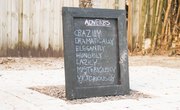Grammar is not an inherently exciting subject. Most high school students would rather do almost about anything else rather than learn the intricacies of a sentence's construction. Nonetheless, you can make a lesson on subject-verb agreement fun by using an unconventional approach. Find complex examples of subject-verb agreement for your high school students and come up with related activities to make the grammar exercises more fun for your students.
Magazine Articles
An important aspect of learning subject-verb agreement is learning to identify subjects and verbs in sentences. Bring in a stack of magazines for your students to look through. Have each student find one article that he finds interesting. Ask students to read the article and to identify one singular subject and verb, one plural subject and verb and one compound subject. You can also have them find sentences that contain some of the trickier subjects, such as "none," "all" and any subject that contains a measurement. A subject containing a measurement means the quantity is viewed as a single entity and should take the singular form. For example, if the sentence reads "three gallons of paint," the verb would represent the singular quantity of all of the paint. The correct subject-verb agreement would read as follows: "three gallons of paint was used in the project," not "three gallons of paint were used in the project."
Jeopardy!
Hosting a fake game show can be an exciting way to teach subject-verb agreement. Set up a chart on the board with a few categories, such as "Singular Pronouns," "Plural Verbs" and "Difficult Subjects." Assign point values to each question in the categories based on their difficulty. Ask a question out loud, such as, "True or false: The subject 'nobody' takes a singular verb." Let the first student to raise her hand answer. Use whiteboards for students to write answers on and keep track of scores. Or pick up cheap hotel-style bells or panic buttons at the dollar store for students to "buzz in" with their answers. The student with the most points at the end of the game wins.
Mad Libs
The mad lib game with blanks left open for often-silly answers can also be adapted for classroom use. Creating exercises with blanks for students to fill out in groups can offer a fun, creative teaching and community opportunity. Come up with a variety of sentences with either the subject or the verb missing. Have students use their knowledge to determine what type of subject or verb should be inserted. Allow students to come up with funny or ridiculous subjects and verbs. Have students read their completed sentences aloud to the class to make this activity even more fun. Ask other students to identify any mistakes. Follow up with an editing exercise to look closer at making the assignment circle back around to grammar study.
Incorrect Sentences
Although it might defy what you would expect, having students create grammatically incorrect sentences can help them learn the rules of subject-verb agreement. After all, to break a rule intentionally, you have to know the rule in the first place. Have each student write a short paragraph containing a variety of subject-verb errors. Next, students exchange paragraphs and do a peer correction of the mistakes in a classmate's work.
Related Articles
References
Writer Bio
David Coodin began working as a writer in 2005, and has been published in "The Walrus." He contributes to various websites, writing primarily in the areas of education and art. Coodin holds a Ph.D. in English literature from York University in Toronto.











